PENGUIN CLASSICS
Published by the Penguin Group
Penguin Books Ltd, 80 Strand, London WC2R 0RL , England
Penguin Group (USA) Inc., 375 Hudson Street, New York, New York 10014, USA
Penguin Group (Canada), 90 Eglinton Avenue East, Suite 700, Toronto, Ontario, Canada M4P 2Y3 (a division of Pearson Penguin Canada Inc.)
Penguin Ireland, 25 St Stephens Green, Dublin 2, Ireland (a division of Penguin Books Ltd)
Penguin Group (Australia), 707 Collins Street, Melbourne, Victoria 3008, Australia (a division of Pearson Australia Group Pty Ltd)
Penguin Books India Pvt Ltd, 11 Community Centre, Panchsheel Park, New Delhi 110 017, India
Penguin Group (NZ), 67 Apollo Drive, Rosedale, Auckland 0632, New Zealand (a division of Pearson New Zealand Ltd)
Penguin Books (South Africa) (Pty) Ltd, Block D, Rosebank Office Park, 181 Jan Smuts Avenue, Parktown North, Gauteng 2193, South Africa Penguin Books Ltd, Registered Offices: 80 Strand, London WC2R 0RL , England www.penguin.com First published in Great Britain by Penguin Classics 2014 Editorial material copyright Jane Kingsley-Smith, 2014 Cover: Death wearing a cardinals hat and mantilla, hand-painted tarot card (photograph: The Bridgeman Art Library) All rights reserved The moral right of the editor has been asserted ISBN: 978-0-141-39224-0 PENGUIN

CLASSICS
THE DUCHESS OF MALFI, THE WHITE DEVIL, THE BROKEN HEART AND TIS PITY SHES A WHORE
JOHN WEBSTER was born in about 1578 in the parish of St Sepulchre-without-Newgate, London, the eldest son of a prosperous coachmaker. He probably attended Merchant Taylors School, before studying law at the Middle Temple, where he developed the rhetorical skills needed for a life in the theatre. His writing career was mainly collaborative, beginning with a tragedy,
Caesars Fall (
c. 1602, now lost), in which Anthony Munday, Thomas Middleton and Michael Drayton all had a hand, and ranging across a number of genres, including popular history (
Lady Jane I and
II, 1602), city comedy (
Westward Ho, 1604), tragicomedy (
The Devils Law-Case,
c. 1618) and civic pageantry (
Monuments of Honour, 1624). Yet it was his two solo-authored tragedies,
The White Devil (1612) and
The Duchess of Malfi (1614), which sealed his reputation.
There are no records of theatrical output between 1605 and 1612, though we know that in 1606 he married Sara Peniall, who was seven months pregnant, and they had at least four children. It may be that during this time Webster was labouring over his two greatest plays. He was clearly aggrieved at the negative reaction to The White Devil when it was first performed at the Red Bull Theatre by the Queen Annes Men to an unenthusiastic audience. However, The Duchess of Malfi, performed by the Kings Men at the Blackfriars Theatre two years later, was an instant success. Despite this new fame, Webster continued to collaborate with all the major dramatists of the time and to work in genres other than tragedy until his death in the 1630s. JOHN FORD was born in April 1586 in Ilsington, Devon, the second son of a wealthy landowner.
We know very little about his life. He may have attended Exeter College, Oxford, before studying law at the Middle Temple in London, an association he seems to have continued throughout his life. His first published work was an elegy entitled Fames Memorial (1606) and his early career was wholly concerned with poetry and philosophical works. It was not until the 1620s that he began writing for the stage, collaborating with the more experienced dramatist Thomas Dekker on plays including The Witch of Edmonton (1621) and a masque, The Suns Darling (1624), and developing his connection with the Kings Men by completing John Fletchers The Fair Maid of the Inn (1626) with Webster and Philip Massinger. In the late 1620s Ford began writing alone, producing the eight plays on which his reputation is based. 1628), The Broken Heart (c. 1629) and Beauty in a Trance (c. 1630, now lost), performed by the Kings Men at the Blackfriars Theatre. 1630, now lost), performed by the Kings Men at the Blackfriars Theatre.
Ford then changed his allegiance to the Queen Henriettas Men at the Cockpit Theatre, Drury Lane, for whom he wrote Tis Pity Shes a Whore (c. 1630), Loves Sacrifice (c. 1632), Perkin Warbeck (c. 1633) and The Fancies, Chaste and Noble (c. 1635). What looks like Fords last play, The Ladys Trial (1638), was performed at the Cockpit by Beestons Boys, after which nothing more of him is known.
JANE KINGSLEY-SMITH studied English at Oriel College, Oxford, and completed her PhD at the Shakespeare Institute, Stratford-upon-Avon. She is the author of two monographs: Shakespeares Drama of Exile (Palgrave, 2003) and Cupid in Early Modern Literature and Culture (Cambridge, 2010), and is currently editing Loves Labours Lost for the new Norton Shakespeare. She is a Reader at Roehampton University, London, and a regular guest speaker at Shakespeares Globe.
THE BEGINNING
Let the conversation begin... Follow the Penguin Twitter.com@penguinukbooks Keep up-to-date with all our stories YouTube.com/penguinbooks Pin Penguin Books to your Pinterest Like Penguin Books on Facebook.com/penguinbooks Find out more about the author and
discover more stories like this at Penguin.co.uk
Chronology
c. 1578 John Webster born in Smithfield, London, the first son of John Webster Snr. 1598 Webster admitted to the Middle Temple, London, to study law. 1601 Ford matriculates at Exeter College, Oxford.
c. 1602 Webster collaborates on
Caesars Fall (with Anthony Munday, Thomas Middleton and Michael Drayton),
Lady Jane I and
II (with Thomas Dekker) and
Christmas Comes but Once a Year (with Thomas Heywood), all lost.
c. 1602 Webster collaborates on
Caesars Fall (with Anthony Munday, Thomas Middleton and Michael Drayton),
Lady Jane I and
II (with Thomas Dekker) and
Christmas Comes but Once a Year (with Thomas Heywood), all lost.
Webster contributes a commendatory poem to Mundays translation of Palmerin of England, Part III. Ford admitted to the Middle Temple, London, to study law. 1603 Death of Elizabeth I; accession of James I. 1604 Webster writes the Induction and other additions for a revised version of John Marstons The Malcontent, performed by the Kings Men at the Blackfriars Theatre.

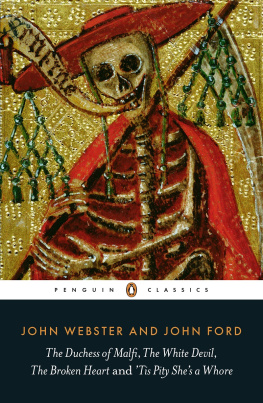


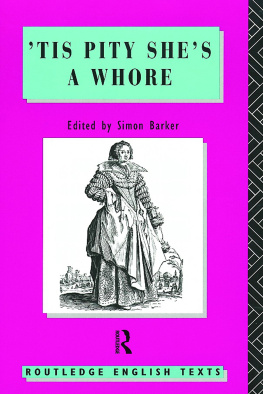
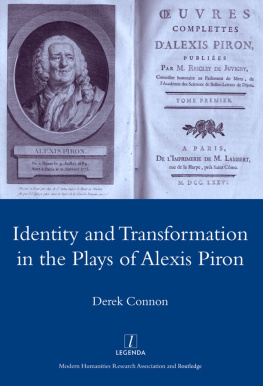
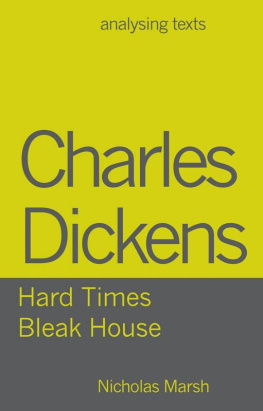
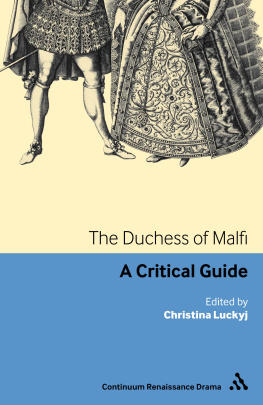

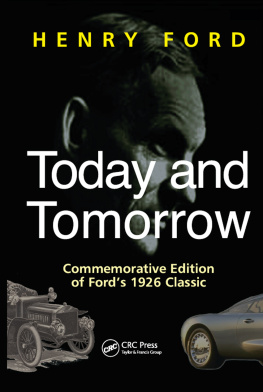
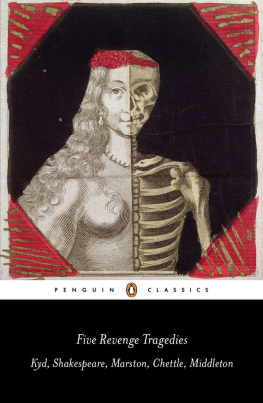



 CLASSICS
CLASSICS